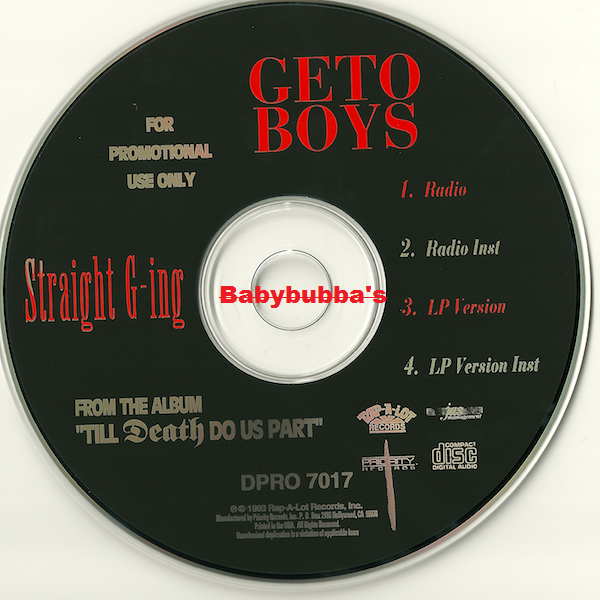
From this vantage point, he sees the forced abortion of the claustrophobic title track not as cruelty, but as mercy: “ Why would you want to make a life in this world we live in? You should terminate it, because it’s a lousy world”.

His growth as a rapper allowed him to explore the underlying issues beneath his homicidal and suicidal thoughts, often taking aim at a society that had already left him for dead (after a character kills his wife and kids, he’s hung up on by the suicide hotline). The rapper, who was born Richard Shaw, revealed last month that he had been diagnosed with stage 4 pancreatic cancer in February. But he reached a creative peak with KKKill the Fetus, combining the sounds of those albums while wondering “ what drives people … to the depths of evil”. Bushwick Bill, a member of the veteran Houston rap trio Geto Boys, has died at the age of 52, his rep confirmed.
#STILL BY THE GETO BOYS INSTRUMENTAL FULL#
In 1989, a 16-year-old Esham helped establish horrorcore with Boomin’ Words from Hell, a self-produced album full of electro-rap dispatches from Detroit’s hellish streets, and in 1992, he released one of hip-hop’s first double albums, the rap-rock Judgement Day. If this list was strictly chronological, Esham would be near the top. Here are 15 of the best, most important horrorcore albums, sorted chronologically to show how the genre has developed over more than a quarter century. You get horrorcore, an often maligned sub-genre that has existed for nearly as long as hip-hop itself and that specializes in the macabre, the sinister, the disgusting and the shocking.

#STILL BY THE GETO BOYS INSTRUMENTAL SERIAL#
But what happens when the hyperbole is pushed to extremes? What happens when lyrics about gangland murder becomes slasher flick serial killing, when chasing women becomes acts of violence, when getting high and drunk at a party becomes addiction, paranoia and psychosis? making of documentaries for our most authoritative Top 10 chart yet. But even as rappers sought to prove their realness, it has always been understood – by the artists that make it and the fans that love it, at least – that hip-hop is a reflection and a comment on society’s ills, not the cause of them.įor many proponents of hardcore hip-hop and gangsta rap, these street-life narratives were a mix of reporting, fiction-writing, and therapy that charged American institutions like the government, police and schools with the responsibility for urban decay. 2000 list (not included are EPs, compilations, or instrumental albums). As hip-hop developed in the 80s and 90s, the genre became synonymous with violence, drugs, and sex.


 0 kommentar(er)
0 kommentar(er)
